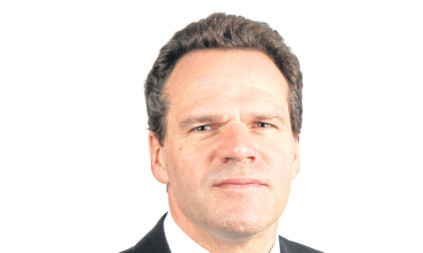A senior Scottish energy lawyer has called for new tax breaks for the UK oil and gas sector, but dismissed “hysterical” claims of the North Sea’s demise.
North-east-based Bob Ruddiman, head of energy and natural resources at Pinsent Masons, urged Chancellor George Osborne to consider new tax reliefs for the industry “without delay”.
The sector is reeling from a plunge in the price of oil from more than $100 per barrel in the autumn to a current low of less than $60.
It has led to warnings about the viability of exploration on the UK Continental Shelf, and forced major energy services firms like Wood Group PSN to announce a freeze on wages and cuts to contractor rates.
Mr Ruddiman said the North Sea was a long-way from the “meltdown” scenario some predicted, but the industry and Government had to adapt to the new economic reality.
“Contrary to the hysterical claims by some pundits, the North Sea oil and gas industry is not going to end tomorrow, but the new landscape in which we operate has brought into sharp focus the question of why the tax burden remains so high.
“Contrast this with other industries which have had ongoing support, for example the initiatives to reintroduce car manufacturing in to some UK regions, and it’s little wonder that E&P (exploration and production) companies feel aggrieved.
“Successive governments have failed to understand the requirement for a mature, long-term energy policy, instead taking a short-term view involving regular tinkering with tax rates.”
Mr Ruddiman said the era of oil and gas firms operating in isolation is gone, and collaboration is the industry buzzword.
“One of key themes to emerge from the Wood Report was the need for greater collaboration, and while there have been well-meaning and wide- ranging statements of good intent, that must be transformed in to action,” said Mr Ruddiman.
“The new industry regulator, the Oil and Gas Authority (OGA), has to play a central role in working for the greater good.
“There is certainly an eagerness from the industry to become engaged with the OGA, but that is hampered by practical challenges, with the required legislation still to be passed by Parliament and the recruitment of Andy Samuel’s team to be completed.
“The Government is doing what it can, but it is imperative that the OGA is up and running as quickly as possible and using the powers envisaged in the Wood Report for the benefit of all engaged in exploration, production and decommissioning.
“While the oil price is a concern, let’s not forget the global demand for oil and gas remains high and we still have significant hydrocarbon resources in the UK, backed up by a world-class supply chain,” said Mr Ruddiman.
“You don’t need a crystal ball to predict the UK will continue to be a significant producer of oil and gas for the foreseeable future, provided all stakeholders work together towards that common goal.”
Mr Ruddiman was speaking ahead of the introduction tomorrow of new transparency rules for the energy sector which will lift the lid on the relationship between companies and the states they work in.
As part of the new EU Directive on Extractive Industries, oil and gas firms registered in the UK will need to disclose payments such as taxes levied, royalties and dividends made to governments on a country and project basis.
The directive, which is being introduced in the UK ahead of wider EU member implementation in July, also applies to the mining and forestry industries.
